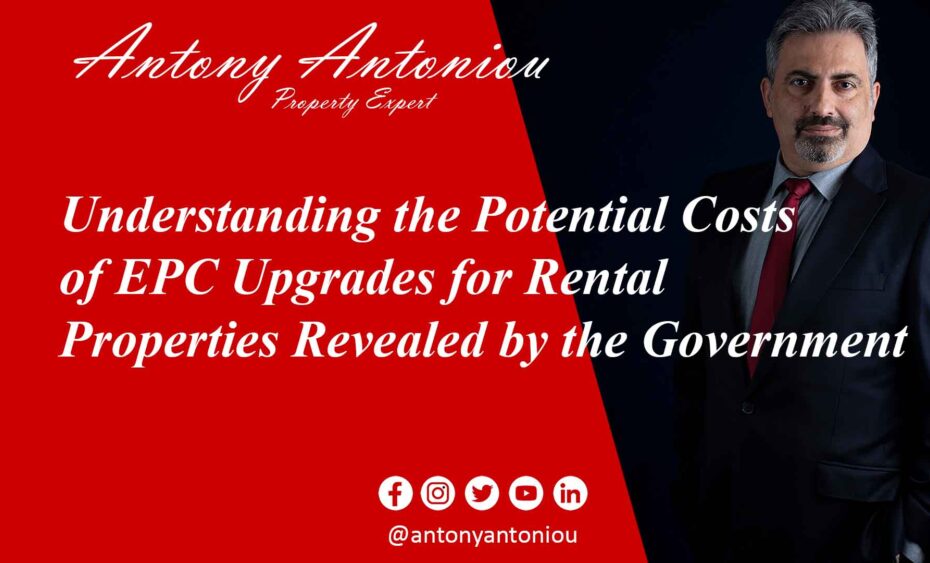Understanding the Potential Costs of EPC Upgrades for Rental Properties Revealed by the Government
Introduction:
The government has recently unveiled an analysis shedding light on the expected expenses associated with improving energy efficiency in private rental homes. According to their findings, approximately 46% of properties would require between £5,000 and £9,999 for upgrades, while nearly 30% could be enhanced for less than £5,000. On the higher end of the scale, around 19% of homes would necessitate between £10,000 and £14,999 to achieve at least an Energy Efficiency Rating (EER) band C. Furthermore, 5% of properties would require investments of £15,000 or more. These figures provide valuable insights into the costs landlords may encounter when upgrading their rental properties.
The Current State of Rental Properties:
The English Housing Survey conducted in 2021 highlighted the prevailing energy efficiency ratings of private rental homes. It revealed that 44% of these homes fell within the EER bands A to C, while 42% were categorized as band D. Regrettably, the remaining 14% were deemed subpar, residing within the EER bands E to G. The survey also indicated that 23% of private rental properties are estimated to fail the Decent Homes Standard, with 14% considered unsafe according to the Housing Health and Safety Rating System (HHSRS). Furthermore, private rented homes exhibited higher rates of damp issues compared to other tenures, with almost 11% experiencing this problem, in contrast to 4% of social rented homes and 2% of owner-occupied properties.
Tenant Mobility and Reasons for Leaving:
According to the survey, the average length of stay for private renters in their current residence is 4.4 years. The most common motive for leaving their rental property was a desire to relocate, accounting for 77% of respondents. In contrast, the least common reasons cited were the end of a fixed-term tenancy (11%), mutual agreement with the landlord (10%), eviction or a request to vacate by the landlord/agent (4%), a strained relationship with the landlord (3%), or the termination of a job (2%).
Housing Support and Financial Challenges:
Approximately 25% of private rented households reported receiving housing support during 2021-22. Additionally, 3% of these households either currently experienced or had experienced rental arrears within the past year (4%). Furthermore, 10% of respondents reported being denied a tenancy in the previous 12 months due to receiving benefits. These figures underscore the financial challenges faced by some private renters and the potential barriers they encounter when seeking suitable housing.
Conclusion:
The government’s analysis provides valuable insights into the expected costs associated with improving energy efficiency in rental properties. Landlords should take note of the potential expenses, with almost half of properties requiring between £5,000 and £9,999 for upgrades. Moreover, the findings highlight the importance of addressing subpar energy efficiency ratings and prevalent issues such as dampness to ensure rental properties meet the Decent Homes Standard and maintain the well-being of tenants. Understanding the dynamics of tenant mobility and the financial challenges faced by private renters can also aid in creating more favorable rental experiences for both landlords and tenants alike.

